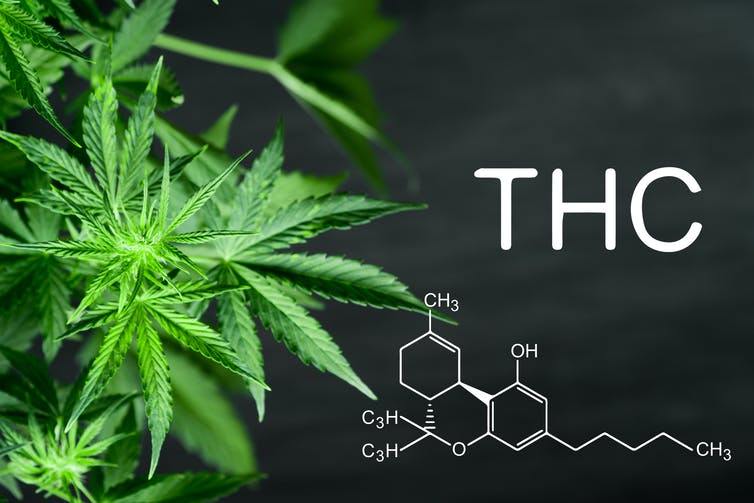|
Listen to this article now
Getting your Trinity Audio player ready...
|
Rants are tricky for many reasons, but particularly, where to begin! Well, science may be a good place always, more so for a less emotive legal analysis. Maida V. and Biasi S. (2021) have a paper on cannabis-base medicines, a quote from the paper reads, “THC can also be included in lotions, balms, salves, oils, and bath salts that are then applied to the skin. The effects of this method are usually localized, which means that they are unlikely to have psychoactive effects. However, such products may be helpful for reducing pain and inflammation.”[1]
This quote reminds me of the street-nonprofessional advice I receive often when beard gang becomes my ultimate pursuit and vanity; I am told to use the products with the herbs, it makes hair grow like magic!
Well, enough for my high rhetoric! Back to the reason for the article, Cannabis, and the law in Ghana. I set out to analyze the Supreme Court of Ghana’s decision on 27th July 2022 in the case of Ezuame Mannan Vs. AG & Another (with absolutely no regard to my high, or otherwise rhetoric – pun intended).
The facts of the case are that the plaintiff sought a declaration that Section 43 of the Narcotics Control Commission Act (Act 1019) was enacted in excess of Parliament’s legislative powers as conferred by the Constitution of the Republic of Ghana. The Plaintiff successfully claimed that the licencing regime policy introduced by Act 1019 was unconstitutional. The claims of the plaintiff were that:
- The manner in which Section 43 of Act 1019 was passed is procedurally inconsistent with, and in contravention of the mode of exercising legislative power as defined by Article 106 of the Constitution.
- The effect of Section 43 of Act 1019 amounts to breach of the Constitution on the grounds that on a proper construction of the international obligations under Treaties to which Ghana is a party, Parliament has enacted a domestic law which is not in congruence with the Treaty obligations, and Parliament is in breach of the Constitutional obligation to promote respect for international law as spelt in Article 40 of the constitution.
- Section 43 of Act 1019 amounts to a breach of the Constitutional imperative for the state to seek the wellbeing of its citizens, to protect the national environment, and safeguard the health, safety, and wellbeing of its citizens as enjoined by Articles 35 and 36 of the Constitution.
- Section 43 of Act 1019 is inconsistent with the letter, intent, and purpose of the entirety of Act 1019.
The majority decision in the words of Justice Kulendi, (JSC) answers some very important questions I wish to highlight in this analysis. The court asked and answered the following legal questions:
- Whether or not the Convention against Illicit Traffic of Narcotic Drugs and Psychotropic Substances and the Single Convention on Narcotics prohibit the cultivation of any strain of cannabis and the production of any extract or product from cannabis?
- Whether or not Article 40, being one of the Directive Principles of State Policy were justiciable?
- Whether or not Parliament violated Article 106 in passing Act 1019 or Section 43 thereof?
To answer the first question on Ghana’s international law obligations, the court referenced Article 28(2) of the Single Convention on Control of Cannabis which reads, “This Convention shall not apply to the cultivation of the cannabis plant exclusively for industrial purposes (fibre and seed) or horticultural purposes”. (Emphasis added)
The court therefore held that, “It is apparent that there is no blanket prohibition on the production of cannabis or cannabis related products in the Single Convention. What there is, is a control of the substance… The 1978 United Nations Convention merely imposes a requirement on party states to make domestic laws which comply with the Single Convention. To the extent that the domestic regulation remains within the boundaries of Article 28(2) of the Single Convention, we find that there is no violation of Ghana’s obligations under the international treaty by the enactment of Act 1019 or Section 43 thereof.”
The court answered the second question on the justiciability of Article 40 by saying the directive principles are prima facie justiciable, but one must establish that Article 40 in and of itself is justiciable. The essential question born by answering that question will be whether or not parliament breached an international treaty obligation to “promote respect for international treaty obligations”? The court held that if even Article 40 is held as justiciable, and assuming Ghana breached an international treaty obligation, it will not amount to the state failing in general to promote respect for international law.
The court’s answers to questions one and two suggest that there is no harm done, and the almighty Section 43 of Act 1019 which reads:
“(1) Despite sections 39 to 42, the Minister, on the recommendation of the Commission, may grant a licence for the cultivation of cannabis which has not more than 0.3% THC content on a dry weight basis for industrial purposes for obtaining fibre or seed or for medicinal purposes.
(2) For the avoidance of doubt, a licence granted under subsection (1) shall not be for the cultivation of cannabis for recreational use”
was good law, and that there was no substantive illegality both internationally or locally (or at least not yet) until the majority decision answered the third legal question.
Article 106(2) requires a bill not intended for the settlement of financial matters to be accompanied with an explanatory memorandum which sets out in detail the policy and principles of the bill, defects in the existing law, remedies in the new bill which propose to deal with those defects and requires the bill to be published in the Gazette at least fourteen days before the date of its introduction in Parliament. The Plaintiff claimed the Memorandum did not sufficiently lay out the policy change that Section 43 brought which led to the policy change not being debated enough before its passage into law. The plaintiff thus argued that the amendments to the new law which allowed for the growth of cannabis with less than 0.3% THC level were belatedly inserted and there was no subsequent report made to Parliament as required by Article 106(4), (5) and (6).
The court held that from the evidence submitted, Parliament did not debate Section 43 which in the words of the court was a “crucial amendment”. It appears the section was ‘smuggled’ into the Narcotic law at about 5:50pm and short of Presidential assent, had become law by 6:02pm. The Court’s majority 4-3 decision thus held in its ratio that, “the lack of debate on Section 43 of Act 1019 amounts to not only a direct violation of the letter of Article 106 of the Constitution, but also a violation of the spirit of the law.” The decision of the majority therefore appears to fall squarely on the “mode of the introduction of Section 43 of Act 1019.”
Swiftly after the majority decision came the spirited dissenting opinions of the Justices Amadu and Amegatcher (JJ.S.C) which were preferred by Justice Kotey (JSC).
In the 53 paged, 104 paragraphs dissent, Justice Amadu circumscribes the scope of the original jurisdiction of the court but also spends considerable time opining on questions of Parliamentary Autonomy, Separation of Powers, Political Question Doctrine and an examination of the Legislative Process. Since the majority decision turned on the “Mode of exercising legislative power”, let us indulge Article 106.
As pointed out by Justice Amadu, the article covers:
- The gazetting of the Bill and its explanatory memorandum
- Introduction in Parliament of the Bill
- First reading of the Bill in Parliament
- Reference of the Bill to the appropriate Committee of Parliament for deliberation
- Return of the Bill by the Committee to Parliament together with a report on the Bill for Second reading
- Second reading of the Bill, the explanatory memorandum and the report of the Committee which deliberated on the Bill.
The process after second reading is guided by the Standing Orders of Parliament. Order 119 of the Standing Orders of Parliament says the explanatory memorandum of the Bill must contain the following matters:
- The policy of the Bill
- The principles of the Bill
- The defects of the existing law
- The remedies proposed to deal with those defects and
- The necessity for its introduction.
The plaintiff’s contention that the explanatory Memorandum to the Bill as gazetted did not include some information which in her view ought to have formed part (a statement of change in policy to allow the Minister to grant licenses for the cultivation of a type of cannabis for obtaining fiber for industrial purposes or seed for medical purposes within the jurisdiction) sounds persuasive, unless examined carefully.
As pointed out by Justice Amadu in paragraph 44 of his dissent, page viii of the Memorandum to the Bill, stated in the second paragraph that; “A person shall not, without lawful authority proof of which lies on that person, cultivate a plant that can be used or consumed as a narcotic drug or from which narcotic drug can be extracted or processed.”
In the words of Justice Amadu, “if the memorandum to the Bill specifically states that lawful authority is required to cultivate a plant that can be used as a narcotic drug, it is difficult to support the argument that section 43 introduced into the Bill which is to the effect that the Minister may licence such cultivation is not contemplated or mentioned in that memorandum.”
If one follows the case of the Plaintiff carefully, it will appear to suggest that Parliament can only pass that which is contained in the Bill as published in the Gazette and introduced to Parliament. That Parliament may have no authority to introduce changes to the Bill especially changes which involve a policy change in the existing law since the explanatory memorandum must contain the five requirements named above.
Paragraph 58 of the dissenting opinion of Justice Amadu also highlights Order 126 of the Standing Orders of Parliament that on a motion made that a Bill be read a Second Time, a full debate arises on the principle of the Bill on the basis of the explanatory memorandum and the report from the committee. The report of the committee does not form part of the Gazette notification nor the first introduction of the Bill in Parliament. There appears to be no restriction on what this report may contain relative to the explanatory memorandum.
Order 127 of the Standing Orders of Parliament provides for a winnowing process: “where after a Bill has been read a second time more than Twenty amendments are proposed to it, any Member proposing an amendment may appear before the Committee dealing with the subject-matter to defend his amendment(s) and the Committee shall submit a report to the House on the result of this exercise before the consideration stage of the Bill is taken.” It is therefore clear from Order 127 of the Standing Orders of Parliament that regardless of the fact that a particular matter has not been part of a Bill and the explanatory memorandum submitted gazetted, introduced in Parliament, read for the first time, Members of Parliament are permitted to introduce amendments to the Bill.
The issue as I humbly see it is one of the ‘smuggling’ of Section 43 into Act 1019 or otherwise and its legal effect. Paragraphs 21 to 23 of Plaintiff’s statement of case highlight that, “At 5.50pm on 20th March 2020, and at the tail end of the second consideration at Committee level on 20th March 2020, a member of parliament begged to move the house by adding a new clause to the law with the heading ‘Special Provision relating to Cannabis ‘which allowed the Minister to grant license for the cultivation of cannabis which has not more than ‘0.3% THC content on a dry weight basis for industrial purposes only for obtaining fibre or seed or for medicinal purpose’.
It is the contention that, the time of this amendment did not allow for a proper debate although it was well within the second reading of the Bill. Parliament had the power to pass the Bill with or without the amendments, so the real question is, to what extent is parliamentary autonomy even as a master of its process and procedure subject to a judiciary incursion?
The law on judicial review is trite and settled; of course, how can any law student forget Marbury Vs. Madison. The question Supreme Courts answer in judicial review cases is however one of constitutionality or otherwise. So simply reducing all issues, we should be left with but one: Does the procedure by which Section 43 of Act 1019 was passed offend Article 106? The heart of the question of judicial review must always be, in the words of Justice Amegatcher (JSC), one reduced to “proceedings tainted as a result of a substantive illegality or unconstitutionality (as opposed to a mere irregularity)”.
You may make an election as you will to answering the all-important question of whether this matter is one for which judicial review is necessary as an effect of substantive illegality or constitutionality. But shall it not be said in our jurisprudence that, time allocation for consideration must constitute “full debate” and that a parliament is without regard to its own process of law making. In the words of Justice Prof. Kotey (JSC), “the original jurisdiction of this Court to determine issues of constitutionality, particularly in relation to constitutionality of an Act of Parliament, must be exercised with utmost circumspection”.
In conclusion, I understand the effects of drug abuse and do not suggest we encourage it as a nation. I am however not without regard to the potential industrial and medicinal value of psychedelics, and I write this with the hope that as a nation we will debate this subject thoroughly.
I hope as a nation that, we may resolve that Nixon’s fight on drugs shall not be our fight without regard to the science and politics of his time. I will however be reminded the next time I am inclined to indulge my beard gang vanity that, licensing for production of cannabis was decided unconstitutional and thus until a review decision or a new opportunity is presented the court, I can only hope that my childlike face is enough, and that beauty likes childlikeness. I will keep listening to my soundtrack by KiDi as I write this article (Puff puff pass, my Mary Jane. I’m high on life, wanna meditate, so allow me, make I enjoy life, ‘Cause problem no dey finish o wey…) as I pray that we may all pursue our common wellbeing.
Let us also commiserate with anyone who may have procured such a licence under Act 1019, with a communal empathy let us say ‘Nana Kafra’. To the Ghanaian scientists and researchers, this is the time to aid policy. We hope that studies of the potential benefits of THC-based medicines are not dreams inspired by the psychedelics themselves and least I forget that all the THC products available in Ghana (if any) were not imported with some ten odd cedi for one Benjamin.
My name is Yaw Sompa, I am in pursuit of wellbeing and yes, I do not smoke weed!
[1] Maida V, Biasi S. “Less pain with more gain”—Managing wound-related pain with cannabis-based medicines. Wound Repair Regen. 2021;29(2):338-341. doi:10.1111/wrr.12895



The best reasoned analysis of the ruling I have read so far.
Keep it up Yaw
Lol it’s good you don’t smoke weed because if you do you’ll not be my friend! Keep listening to great music, it’s good for the soul… Thank you!